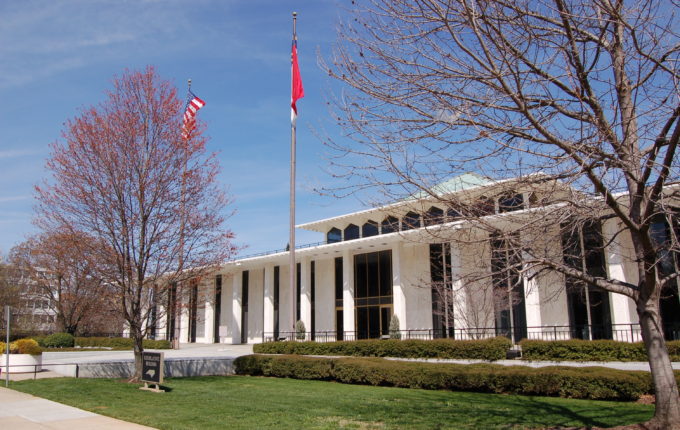The NC General Assembly adjourned (again) a couple weeks ago, and with November officially upon us it’s probably as good a time as any to put a bow on this year’s legislative session. Overall, it was a good session for North Carolina agriculture, with the General Assembly enacting several important measures to help farmers. Today, we want to give you a quick overview of a few key legislative actions.
 Taxes / US Government
Taxes / US Government
With Congress back in their districts for August Recess, we thought it’d be a good time to talk about a some federal issues that are a high priority for Farm Bureau. First up this week: tax reform.
Congress is starting to get serious about tax reform. Both the President and leaders in Congress say they want to develop a tax reform plan this fall. But what will it look like? Will it include the things farmers need to be successful?
Agriculture operates in a world of uncertainty. From unpredictable commodity and product markets to fluctuating input prices, from uncertain weather to insect or disease outbreaks, running a farm business is challenging under the best of circumstances. Farmers need a tax code that recognizes their unique financial challenges.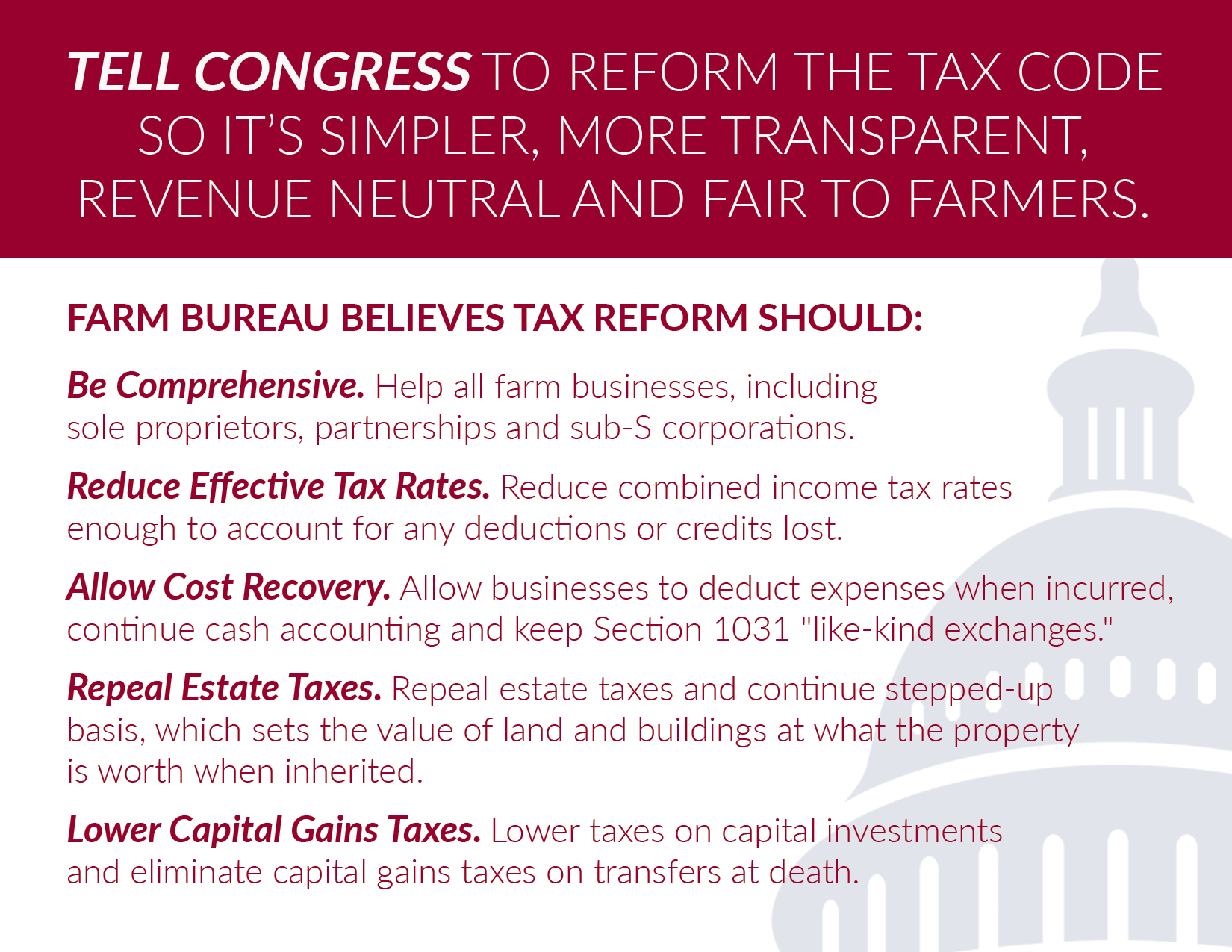
Farm Bureau supports replacing the current federal income tax with a fair and equitable tax system that encourages success, savings, investment and entrepreneurship. We believe that the new code should be simple, transparent, revenue-neutral and fair to farmers.
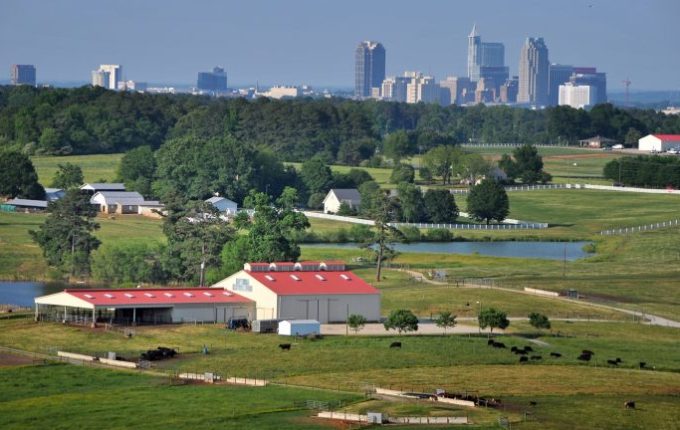 Economy
Economy
Written by Dr. Mike Walden and originally published at NCSU CALS News.
My wife and I have one foot in rural regions and the other in big cities. We were both born and raised in small towns – I in an unincorporated town (meaning it wasn’t big enough to qualify as an official municipality) in Ohio and she in a recognized town (but still tiny) in upstate New York. I have a vague memory of my mother pulling me in a little wagon to the country store for groceries. On the way home, the groceries were in the wagon and I would walk!
But we’ve spent almost the last forty years of our lives living in Raleigh since I joined the faculty at N.C. State in 1978. Although it may not have been when we moved here, Raleigh today is certainly a big city. Indeed, it is recognized as one of the most dynamic big cities in the country.
My wife and I love both cities and the country. That’s one reason North Carolina is so great – it has both busy urban areas as well as tranquil rural regions.
But often the urban and rural areas don’t seem to get along. For example, in the 2016 presidential election, urban areas tended to vote for Secretary Clinton while rural regions favored President Trump. We saw the same urban/rural split in the North Carolina gubernatorial and General Assembly elections.
The urban-rural divide in North Carolina also extends to public policy. Here are two examples. Local public schools are partially supported by local property tax revenues. Since property values per resident are often higher in urban counties than in rural counties, there’s been a long-running debate whether this wealth disparity gives urban counties an unfair advantage in funding public schools.
The second example is sales taxes. Part of the sales tax revenues collected by the state are returned to the counties, but there’s an issue over how to do this. Should the distribution to counties be based on where the sales occurred or where the buyers live? North Carolina has a formula using both factors, but there’s frequently a debate about the relative importance of each in the formula. Indeed, legislation was introduced this year in the General Assembly to change the formula.
Has the urban-rural feud gotten worse? Some say three powerful forces – globalization, the elevation of education’s importance and population trends – have moved urban and rural areas farther apart in recent decades.
 Politics / State Government
Politics / State Government
Ask most farmers and they’ll probably tell you they don’t like taking days off the farm. The job demands a lot of time and attention, and it’s critical that farmers stay on top of the day-in day-out tasks (like covering strawberries before a freeze) that lead to a successful year. But today, hundreds of dedicated farmers and friends of agriculture from communities all across the state have left their farms to do another kind of work—meeting with their legislators. That’s because today is NC Agriculture Awareness Day, a day for farmers and ag leaders to bring awareness to the legislature about the importance of agriculture in North Carolina. And it’s an essential task too; with so few legislators involved in agriculture, today’s rally is a valuable opportunity to help legislators understand the challenges that farmers face.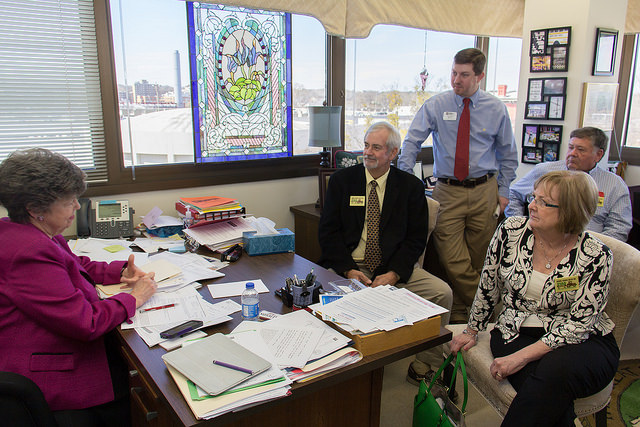
So what are some of those challenges farmers will be discussing with their legislators? Ask ten farmers and you might get ten different answers, but there are a few themes that rise to the top. This year, the key messages that Farm Bureau members will be delivering are:
Hurricane/Wildfire Recovery
- Last year, the legislature appropriated $200 million in hurricane/wildfire relief.
- But even though we’re many months removed from those disasters, many NC farmers are still recovering.
- We support additional disaster relief funding during appropriations process.
Preserve Present Use Value Program
- The Present Use Value Program provides qualifying farms with property tax relief by taxing the land based on its present use (farming or forestry) and deferring market value taxes.
- This helps farms continue production and preserves farmland.
- We support the preservation of this vital tax program.
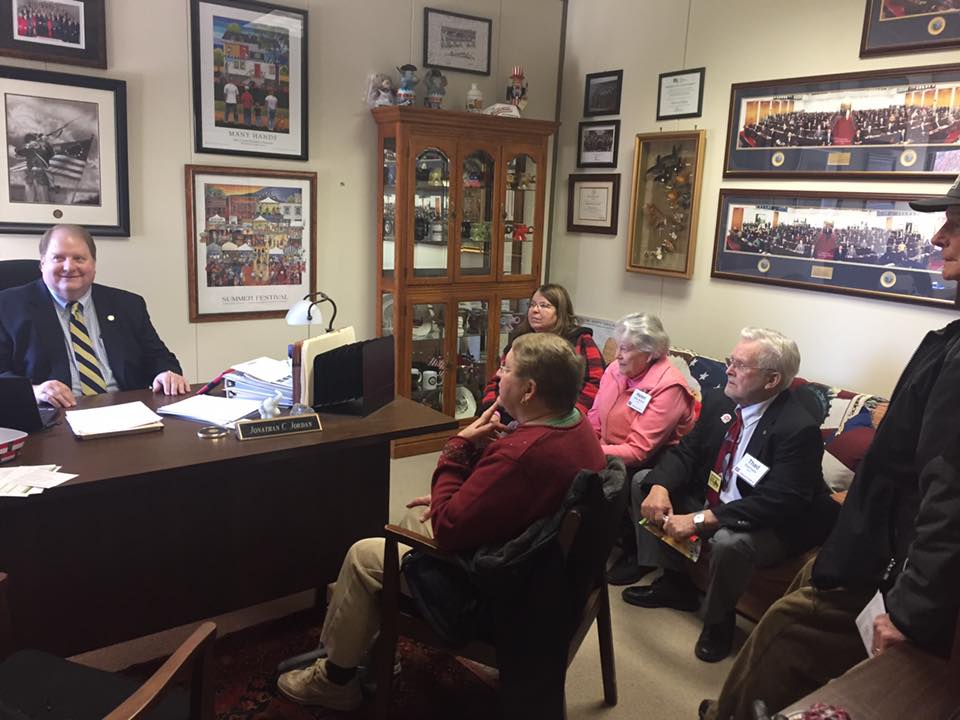 Preserve Ag Sales Tax Exemptions
Preserve Ag Sales Tax Exemptions
- Eligible farmers are exempt from sales tax on farm equipment, inputs, and services.
- This helps prevent double taxation on farm products and products derived from agriculture.
- The legislature should maintain these exemptions if tax reform legislation is considered.
Healthcare Costs
- Most farmers purchase health care in the individual market because they are often small businesses or sole proprietorships that don’t have access to group coverage.
- Farmers are bearing the brunt of significant health insurance increases and struggle with inconsistencies in premium subsidies.
- Farmers are also dealing with a sluggish ag economy and disaster recovery, further cutting into their bottom line.
- Legislators should work to keep health care costs down.
North Carolina Agriculture is not only our state’s largest economic driver but it also supports more than 600,000 jobs—about one out of every six in the state. That’s why it’s important that legislators are kept up to date on ag issues; because if ag is hurting, then so is our economy.
NC Farm Bureau would like to thank all of the legislators who take time to meet with our farmers and hear their concerns.
 State Government / Taxes / US Government
State Government / Taxes / US Government
Tax Day is right around the corner, and people from all across the country and from all walks of life are working through the complex and confusing process of filing their taxes. Like everyone else, farmers (and their tax professionals) have to work through a maze of rules and regulations to complete their returns. As Tax Day approaches, let’s take a moment to make some observations about farmers and taxes.

